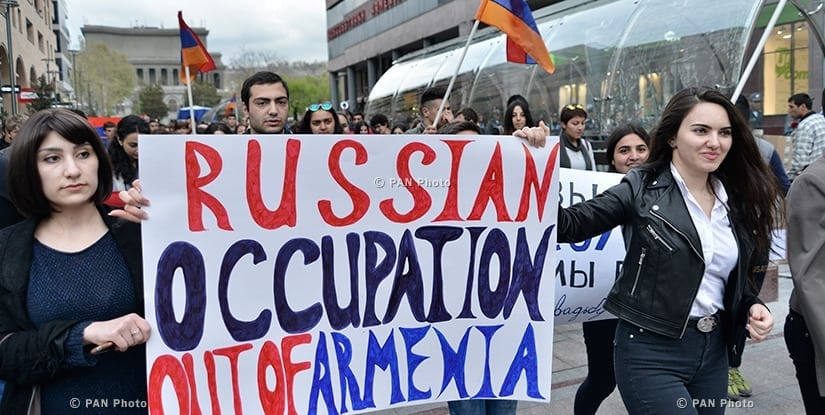On April 14, Prime Minister Nikol Pashinyan announced the need to strengthen military cooperation with Russia. The question is the possible expansion of the Russian military base No. 102 already operating within the Armenian territory and creating its branches in other regions. Such rhetoric was a result of the defeat of the Armenian armed forces in the second war over Nagorno-Karabakh last fall, where the victory went to Azerbaijan.
It is worth mentioning that Pashinyan came to power amid massive anti-corruption protests in the spring of 2018. And although neither he nor anyone from his entourage spoke about plans to weaken ties with Russia, the shift of power gave rise to hope for many people for the strengthening of democratic processes in Armenia.
As you may know, Pashinyan’s predecessor Serzh Sargsyan, did not hide his dependence on the will of the Russian leadership, constantly demonstrating support for Russia on the global stage. The latter appeared as synchronized voting together with Russia on controversial for the Kremlin issues in the UN. For example, Armenia became one of 10 countries (excluding Russia itself) that rejected the UN General Assembly Resolution of March 27, 2014 on the recognition of the independence and territorial integrity of Ukraine. Back then the Russian troops seized the Ukrainian territories by force – they illegally occupied the Crimean peninsula.
However, the rise to power of a new prime minister in Armenia did not particularly affected the foreign policy of the country, and there was no question of breaking close bonds with Russia. Armenia kept supporting the position of Russian diplomats on the world stage on all controversial issues, such as Crimea or Syria. One of the reasons for this commitment is the country’s strong economic dependence on Russia – the share of Russian investments in the Armenian economy is over 40%, and some industries are completely controlled by Russian capital.
Following the defeat in the conflict with Azerbaijan and the loss of controlled territories, we can expect the transition of the Armenian-Russian relations to a new, even closer level of cooperation. The stake on deepening relations with Russia is the only chance for representatives of the Armenian government to maintain their positions, although Pashinyan said that he plans shortly to resign. His bold statements about the need to deepen Russian-Armenian cooperation are nothing more than a desire to help his comrades in seeking success in the subsequent race for power. It should be noted that the pro-Russian Sargsyan is a representative of the so-called “Karabakh clan” – veterans of the first war for Nagorno-Karabakh of 1992-94, victorious for the Armenian side. As a result, for the majority of ordinary Armenians, the pro-Russian politician’s vector will be associated with victory.
It can be assumed that in the nearest time Armenia will even more explicitly and actively support Russia in its adventures on the international arena. For example, by sending their official representatives to the illegally occupied Crimea to participate in Kremlin-organized events in order to demonstrate their loyalty to Moscow and solicit its support in the upcoming election race.
Source: Democratic-europe

